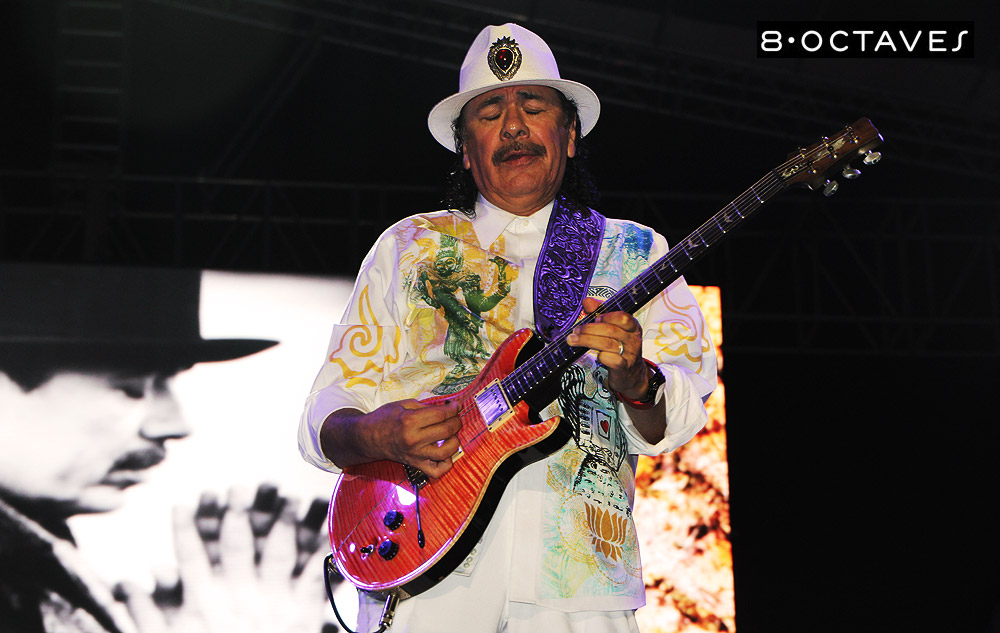The ultimate ‘black’ metalists from India, 1833 AD haven’t failed to bring new direction approach to metal music scene in India. Giving keen importance to the lyrical themes, the band brings together their individual playing styles to create an atmosphere of ‘sorrow’ and ‘hatred’. Leave aside the negative emotions as the band opens up positively to Amrutha Ananth of Eight Octaves.
Eight Octaves: How are your band warm up sessions usually done? Any tips for all musicians out there?
Nishant: One thing that almost every band faces is the drummer’s constant need to “warm up”. The rest of the band might hate the wait, but we need to understand that it’s very important for the drummer to do that. The way we tackle this is by letting Raghav warm up while the rest of us set up. That time may be too less, so we start off with the slower songs to continue his warm up before we move onto more physically challenging songs. This way we minimize wasting time and maximize productivity.
Eight Octaves: How would you usually arrive at a certain theme for a song?
Nishant: I like continuity in everything. I would like to tell one long story than tell ten small ones. The same reason I would prefer a video game with a storyline over a one on one fighting game. This concept guided me through the writing of ‘My Dark Symphony’ which had an underlying theme of the Indian Trinity of Gods. It made the writing process so much easier because I knew where the dots were, I just had to figure out a way to connect them.
Eight Octaves: How do you handle mistakes during a live performance?
Nishant: By not staring at the other person and screaming “abbey kya kar raha hai!”. Jokes apart, we cannot avoid mistakes and every band makes them. We just continue playing as if nothing happened because more often than not, it goes unnoticed and your fans are there to have a good time. They don’t care if you missed a beat or a note. Just have fun on stage and make sure your fans get their money’s worth.
Eight Octaves: What according to you would a ‘professional practice session setup’ approach look like in the band rehearsal setting?
Nishant: Unless you are paying for a high end jam pad, it is quite possible that you would be practicing in a small hole of a room with sounds ricocheting from each corner of the room. It is absolutely ok and we all started off that way. If you can afford a big place, good for you, if you can’t, don’t fret it. Few things you may consider is providing the drummer with whatever he needs most, guitars, bass or vocals. It is also important that the drums are audible, else it will be chaos. Most importantly, you MUST invest in good ear plugs or you will go deaf.

Eight Octaves: How much has ‘Black Metal’ diverged as a genre in India in the last 2 yrs? How much scope do you see in India?
Nishant: A lot more bands have started playing Black Metal now. It is unfortunate that they haven’t played a lot of shows yet, but I’m sure their time will come. There is definitely scope because a lot of Indians love metal. They just need to broaden their interests to include Black Metal. Once they realize how beautiful this genre is, Black Metal bands will start getting better platforms to play on. I can’t say how soon this will happen, but I’m certain that it will one day.
Eight Octaves: What inspires and influences you the most while making music? Tell us about your favourite artists? Can we see a stark influence of any one of the artists in your tracks? (at least one)?
Nishant: My favorite source of inspiration is darkness. I have written most of my songs in absolute darkness. Darkness feels like a huge canvas I can paint on. It sounds cheesy, but try it. Maybe it’ll work for you too. There is so much space to let your mind wander. Times that you have been happy, sad, angry, whatever else you’ve been, can all come together to become the blueprint of a great song. My favorite bands are not Black Metal bands, but I did listen to all of the Norwegian greats and a lot of Cradle of Filth when I was growing up. If their influences have crept into our songs, it wasn’t intentional. If I had to name one, it would be one of the shrieks that I do that is signature Dani Filth.

Eight Octaves: Religion vs. Music. What’s your take on it?
Nishant: Unless you are doing devotional music, the two don’t need to be related. Black Metal has been misrepresented enough over the years. Fans don’t even know if they are atheists or antitheists or Satanists. I have talked this topic to death and don’t want to get into it again.
Eight Octaves: Tell us something about the gear you use. Any specific ‘tuning’ techniques?
Nishant: Rahul and I are supported by Gibson Guitars and play on two amazing guitars. He has the Gibson SG and I have the Flying V. Sushmit is endorsing Rockbass by Warwick thanks to Furtados and has the amazing Corvette $$ 5. I would highly recommend bands to invest in a clip on tuner that they can use off stage before getting on. One per band would do just fine. On stage, guitarists are usually fine as they have their processors. But in case they are going in direct or if the bassist is not using any unit, they can use this to stay in tune between songs.
Eight Octaves: “My Dark Symphony” was released in June 2012 and did really well. What does 1833 AD have for 2013?
Nishant: We are planning to get something out in 2013 as well, if time permits. It won’t be a full length album for sure. It will be an EP or something experimental. Only time will tell.
Eight Octaves: What do you think is your strength/weakness as a band?
Nishant: One strength, which I have to call out, is the ability to function as a band even after I moved to Bangalore for work. The guys back in Delhi practice regularly and I do my bit here in Bangalore. Whenever we are scheduled to play, we meet up a day before or sometimes even that very day for a quick run through of our songs and we’re good to go. One time, the sound check on stage was the only practice we had, and we played a great show. If everyone is good at what they do, the band will sound great together. Jobs, having to pay bills and not getting paid enough for shows are the biggest weaknesses of most Indian bands. I would like to stay positive. Maybe it’s painfully slow, but there will come a day when Indian bands, including metal bands can survive just by playing music, or at least by being involved in the music industry.



